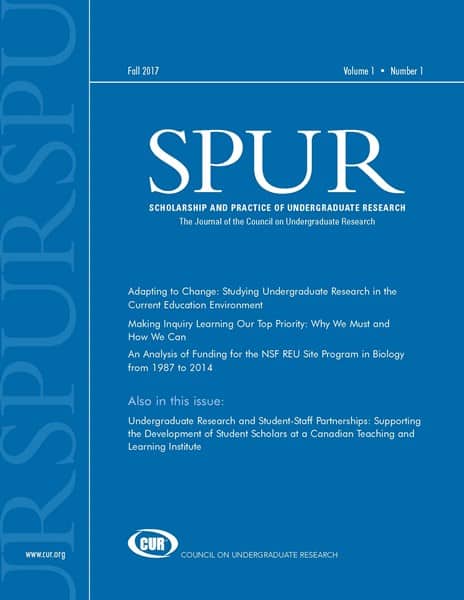SPUR (2017) 1 (1): https://doi.org/10.18833/spur/1/1/9
A theory of action outlining undergraduate research program inputs and desired outcomes was developed and used to guide implementation of Course-Based Undergraduate Research Experience (CURE) sections and to create assessment tools to measure attainment of program goals in both apprentice-model undergraduate research and CURE. Student survey results for these two research programs were compared and suggest that many aspects of the academic goals such as designing an experiment, using equipment, collecting and analyzing data, and collaborating with others were achieved in both groups. Regarding the relationship with mentors, both groups reported receiving academic advisement in course selection and career options. Students in the apprenticemodel program were more likely to discuss managing time, establishing career goals, networking, applying to graduate school, and building professionalism with their mentors. Students in the apprentice-model program also reported more time working with their research mentor, a higher quality research experience with their mentor, greater gains in communicating research findings, and more confidence in their research ability and future career path, at a statistically significant level. This approach and information may be useful to faculty mentors in improving the undergraduate researcher experience.
More Articles in this Issue
No posts found


